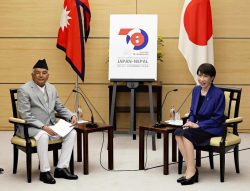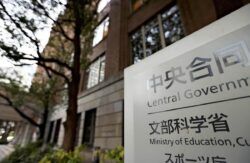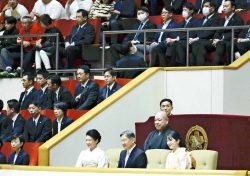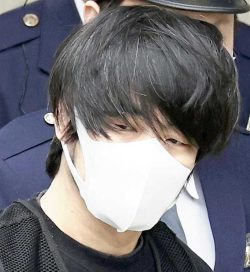Japan’s Newly Elected LDP President Vows to ‘Protect’ Regional Areas; Ishiba Eyes Making Regional Areas More Attractive to Young People
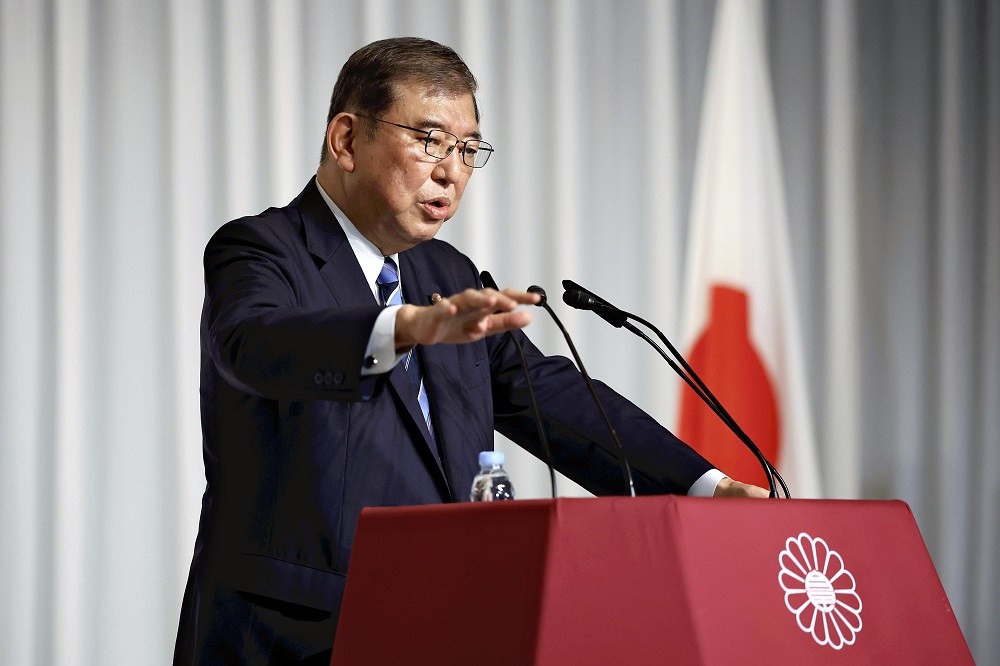
Shigeru Ishiba
18:34 JST, September 28, 2024
Shigeru Ishiba, the newly elected president of the ruling Liberal Democratic Party, is calling for regional revitalization as his key economic policy.
It remains to be seen if he will be able to capitalize on regional areas, which are facing declining populations, to boost the economy through such measures as relocating central government offices and utilizing technology.
Subsidies increase
Ishiba is strongly motivated to promote regional revitalization, as he has served as regional revitalization minister from 2014 to 2016.
“I will halt population declines in regional areas,” Ishiba said at a press conference after the LDP presidential election on Friday. “I’ll protect local communities to further promote the areas.”
Ishiba plans to establish the office for the regional economies and living environment and implement a set of comprehensive policies within the next decade.
He is considering helping companies expand their businesses into regional areas, as well as providing support for businesses to remain in the region and for startups to open companies in there. Ishiba also intends to reduce the digital divide between large cities and rural areas by relocating central government offices to regional areas and promote digitization.
Ishiba also plans to increase subsidies to accelerate local government efforts to make their areas more attractive.
“I would like to intensively consider what form regional areas should take to attract younger people and women,” he said, with a view of increasing regional populations and marriage rates.
Strengthening taxation
Strengthening taxation on financial income, such as those on capital gains, was one of Ishiba’s policy proposals that attracted a lot of attention. Under the current system, the wealthiest tend to pay proportionally less in taxes. As a result, Ishiba proposed a policy to make it fair.
However, he refrained from making the argument after other candidates in the presidential race criticized the proposal, insisting that it runs counter to the idea of encouraging people to invest rather than save, an idea that the government has promoted.
Despite the criticism, Ishiba continues to argue that the tax system needs to be fair, and unless it is fair, its credibility will be ruined. Therefore, attention is focused on whether he will call for strengthening taxation in the future.
Minimum wage
To encourage growth, Ishiba called for raising the national average minimum wage to 1,500 yen an hour by the end of the 2020s, instead of the mid-2030s, as pledged by Prime Minister Fumio Kishida’s administration.
However, issues need to be addressed before it is realized, given that small and medium-sized companies are strongly disinclined to raise the minimum wage, as they are cautious of further increases in personnel costs.
Regarding energy, Ishiba initially insisted that he would maximize his efforts to end the country’s reliance on nuclear power, but he later revised his comment, saying that nuclear power could be utilized under the condition of ensuring its safety.
Ishiba also plans to look into domestic resources and promote the use of renewable energy, including geothermal electric power.
Related Tags
Top Articles in Politics
-

Japan Tourism Agency Calls for Strengthening Measures Against Overtourism
-

Japan Seeks to Enhance Defense Capabilities in Pacific as 3 National Security Documents to Be Revised
-
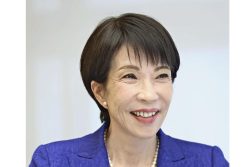
Japan’s Prime Minister: 2-Year Tax Cut on Food Possible Without Issuing Bonds
-
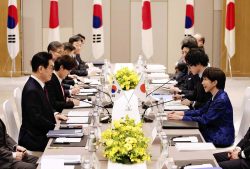
Japan-South Korea Leaders Meeting Focuses on Rare Earth Supply Chains, Cooperation Toward Regional Stability
-

Voters Using AI to Choose Candidates in Japan’s Upcoming General Election; ChatGPT, Other AI Services Found Providing Incorrect Information
JN ACCESS RANKING
-

Univ. in Japan, Tokyo-Based Startup to Develop Satellite for Disaster Prevention Measures, Bears
-

JAL, ANA Cancel Flights During 3-day Holiday Weekend due to Blizzard
-

Japan Institute to Use Domestic Commercial Optical Lattice Clock to Set Japan Standard Time
-

China Eyes Rare Earth Foothold in Malaysia to Maintain Dominance, Counter Japan, U.S.
-

Japan, Qatar Ministers Agree on Need for Stable Energy Supplies; Motegi, Qatari Prime Minister Al-Thani Affirm Commitment to Cooperation




